Originally Presented at the ‘Solve for X’ science variety show (Dragon Con 2017)
I just bought a smartwatch. The company I work for builds the processor that makes it “smart”. This thing is straight out of a Star Trek episode. It feeds me information from a globally connected computer network, uses artificial intelligence to predict my needs, and responds to my voice. I use that last feature more than you might think, given my odd relationship with both science fiction and voice recognition.
When I was five, I got an action figure as a gift. C3PO from Star Wars was the first toy I remember owning. It was life changing. Space travel, robots, grand adventure. I latched onto that world. My mom realized this, and threw Doctor Who and Star Trek into the mix. Star Wars and Doctor Who were pretty cool, but they were clearly fantasy worlds. Star Trek had a certain humanity that made it more relatable.
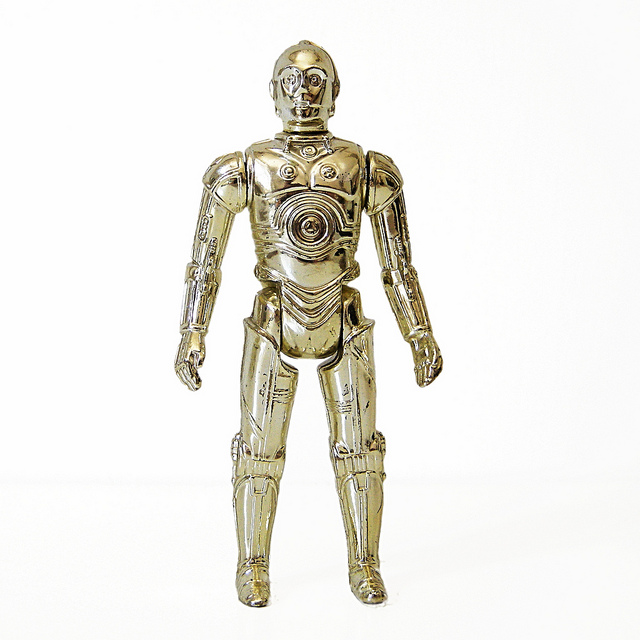
Like many folks my age, I became an engineer because of Star Trek. Seeing Spock talk to the Enterprise computer inspired me to study speech recognition. But, sadly, Star Trek is also the reason I got out of the field.
I know, it sounds sad. But don’t worry… Captain Kirk himself validated my career choice.

First, we need to get something straight: When I say Captain Kirk, I mean William Shatner. Captain of the USS Enterprise. NCC-1701. A Constitution class starship and the pride of the Federation. Trust me, I have the operator’s manual… aaaaaannnnnnd the pop-up book.

William Shatner took on this iconic TV role in 1966, I will not spend the rest of this video expounding on the cultural importance of Star Trek. A high percentage of the Internet is dedicated to that topic. I want to focus on is the science of people talking to computers.
Over twenty years ago, I got my master’s degree in electrical engineering. Even though I spent years studying speech recognition, I decided to leave the field and work on computer firmware.
Today, that seems like a silly choice. Voice recognition is everywhere. Alexa, Siri, Cortana, Google Home, the remote for your cable box, my watch. We’re finally seeing the promise of the Enterprise bridge computer come to life. Back in 1996, when I was finishing my master’s degree, things were very different.
Back in 1996, speech recognition was the technology of the future.
Back in 1996, speech recognition was awful.
Back in 1996, none of this shit worked.
I know, because I spent two years of my young adult life studying it. Phonemes, LPC coefficients, neural networks, hidden Markov models, MATLAB simulations… I even worked a summer job at AT&T. What they had wasn’t even close to what you get free with Windows 10.
We didn’t have “the cloud”. We barely had fog. It. Was. Awful.
Science fiction like Star Trek is the inspiration for many of today’s technological advancements. Unfortunately, it set the bar too high for voice recognition. Everyone wanted it to work like it did on the Enterprise.
Everyone… wanted… to be… KIRK!
Ok, I didn’t want to be Captain Kirk. I identified more with Spock than Kirk, and I really liked Scotty. Yes, Kirk lead the way, but Spock and Scotty got things done. They spent more time interacting with the ship, and a lot more time talking to the computer. I felt like I could manifest their world if I could make voice recognition work like it did on the show.
But I couldn’t make it happen. At twenty-four, I faced a harsh reality: spend twenty years researching voice recognition in the hopes I’d make a discovery, or get a real job so I wouldn’t spend the prime of my life in a research lab.
I took the real job. And honestly, it was amazing. I was working on firmware, the low-level computer code most people never see, but I was making things. My code ran on products you could buy in a store. I got to travel the world, collaborate with amazing people, and work on products months before they hit the market.
In a way, I became Scotty. Which is pretty damn cool.
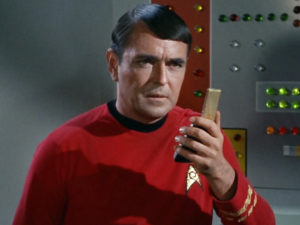
Still, it was a bit troubling. How could I have worked so hard on voice recognition and just walk away without following it through? I knew I had made the right choice in my career, but there was always that little voice in the back of my head. Then, one day, I had a moment of clarity. A moment that finally confirmed I made the right decision.
September 12, 2002 was the day I met Captain Kirk.

I was a guest speaker at a computer conference in San Jose, California. Each day of the conference had a morning keynote. On Tuesday and Wednesday, the keynotes featured a parade of executives discussing the latest technological innovations. On Thursday, William Shatner was promoting his book.
I’m Working on That : A Trek From Science Fiction to Science Fact is a book about technology seen on Star Trek that actually made its way into reality. It’s an interesting story about people who went into science and engineering because of what they saw on Star Trek.
This is… my story. I mean, I’m not in the book, but James T. Kirk was telling the story of people just like me. So when it came time for Q&A, I had to ask him about the technology he personally ruined for me.
Well, not immediately. First, because I’m *me*, I had to ask him if there plans for T.J. Hooker: The Next Generation. This generated a chuckle, followed by a stern “NO.”
Now the real question: Does sci-fi like Star Trek set the bar too high for certain technologies? Did the portrayal of a confident man on the bridge of a starship make it impossible for technologies like computer voice recognition to get proper traction?
I must have struck a raw nerve, because Bill went off on a bit of a rant.
“Voice recognition… doesn’t… work!”
These days everyone has a fun story about Siri getting an address wrong, or Google Now showing them shopping results for “spare parts” when they really need directions to the airport. But fifteen years ago, a guy who got paid to talk to a computer on TV had this story.

Apparently William Shatner has some bad experiences with voice recognition while researching the book. He visited Ray Kurzweil, a scientist and author famous with his work in text-to-speech synthesis and speech recognition. Bill tried out Ray’s technology, and it didn’t work. Now this was over fifteen years ago, so the state-of-the-art wasn’t exactly state-of-the-art, but still…
Captain Kirk couldn’t talk to the computer. Captain Kirk wasn’t happy. And Captain Kirk wanted to know why *I* didn’t fix it.
Yup. In front of hundreds of my peers, William Shatner wondered aloud why I didn’t personally fix computer-based voice recognition.
After he breathlessly exclaimed “Voice recognition doesn’t work,” I calmly replied, “That’s why I don’t work on it anymore.”
As the audience laughed, he looked at me and said, “Good career choice.”
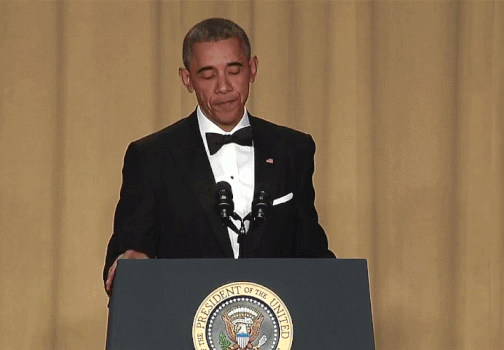
Yes, in front of hundreds of my fellow engineers, Captain James Tiberius Kirk validated my career choices.
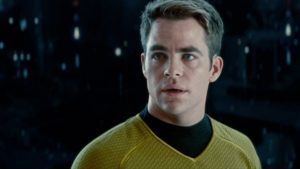
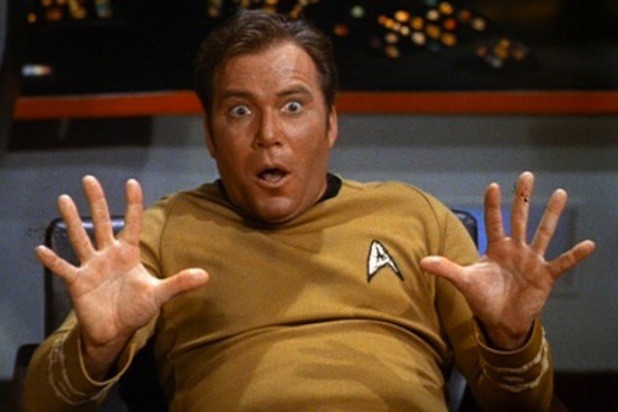
Leave a Reply